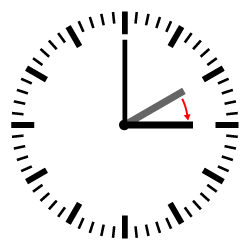Decimal Day (15th February 1971) was the day the United Kingdom and Ireland
decimalised their currencies.
The old system
Under the old currency of
pounds,
shillings and
pence, the pound was made up of 240 pence (denoted by the letter d for Latin
denarius and now referred to as "old pence"), with 12 pence in a shilling and 20 shillings (denoted by s for Latin solidus) in a pound. Especially in an era before widespread computer use, monetary calculation, such as adding up sums of money, was more complicated than with a decimal currency. Tourists were also confused by coins such as the '
half-crown' (worth two shillings and sixpence, or one eighth of a pound). The loss of value of the currency meant that the
penny, with the same diameter as the U.S. half dollar, was of relatively slight value (the
farthing, worth one-quarter of an old penny, had been demonetised in 1960).
Changeover
Under the new system, the pound was retained but was now divided into 100 "new pence", denoted by the symbol p. New, different coinage was issued alongside the old coins. The 5p and 10p coins were first introduced in April 1968 and were the same size, composition and value as the shillings and florins circulating alongside them. In October 1969 the 50p coin was introduced and the old ten-shilling note was eventually withdrawn, in November 1970. This reduced the number of new coins that had to be introduced on the day and meant that the public was already familiar with three of the six new coins. Small book were made available containing some or all of the new denominations.
Decimal Day itself went smoothly and did not even form the lead story the following day in most national newspapers. Criticisms included the small size of the new halfpenny coin and the fact that some traders had taken advantage of the transition to raise prices. Some used new pennies as sixpences in vending machines.
Now let's hope some day in the near future traffic signs and capacity measurements (for example in petrol stations) in the UK, Ireland and other English-speaking countries will also be decimalised. Shall our eyes see that change? At LEZ we are afraid we won't...
No copyright infringement intended. For educational, non-commercial purposes only.



